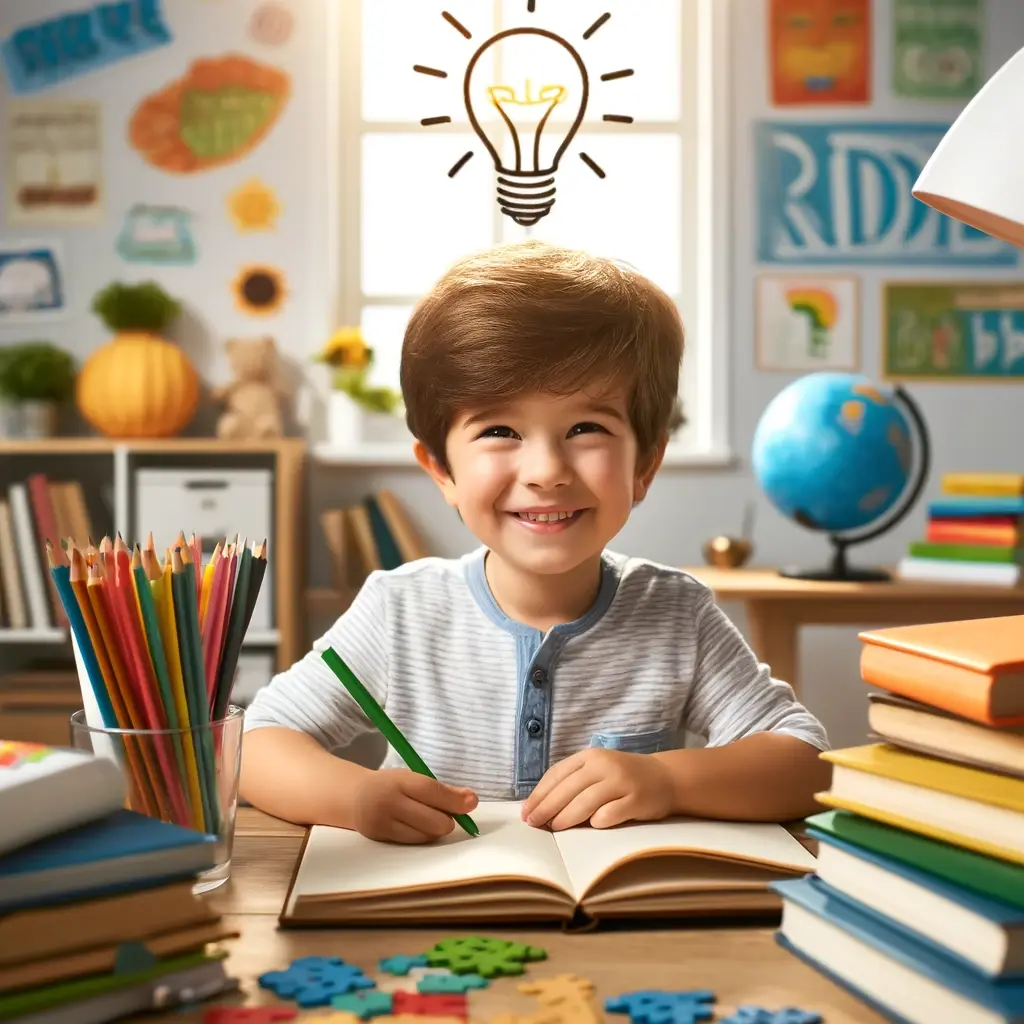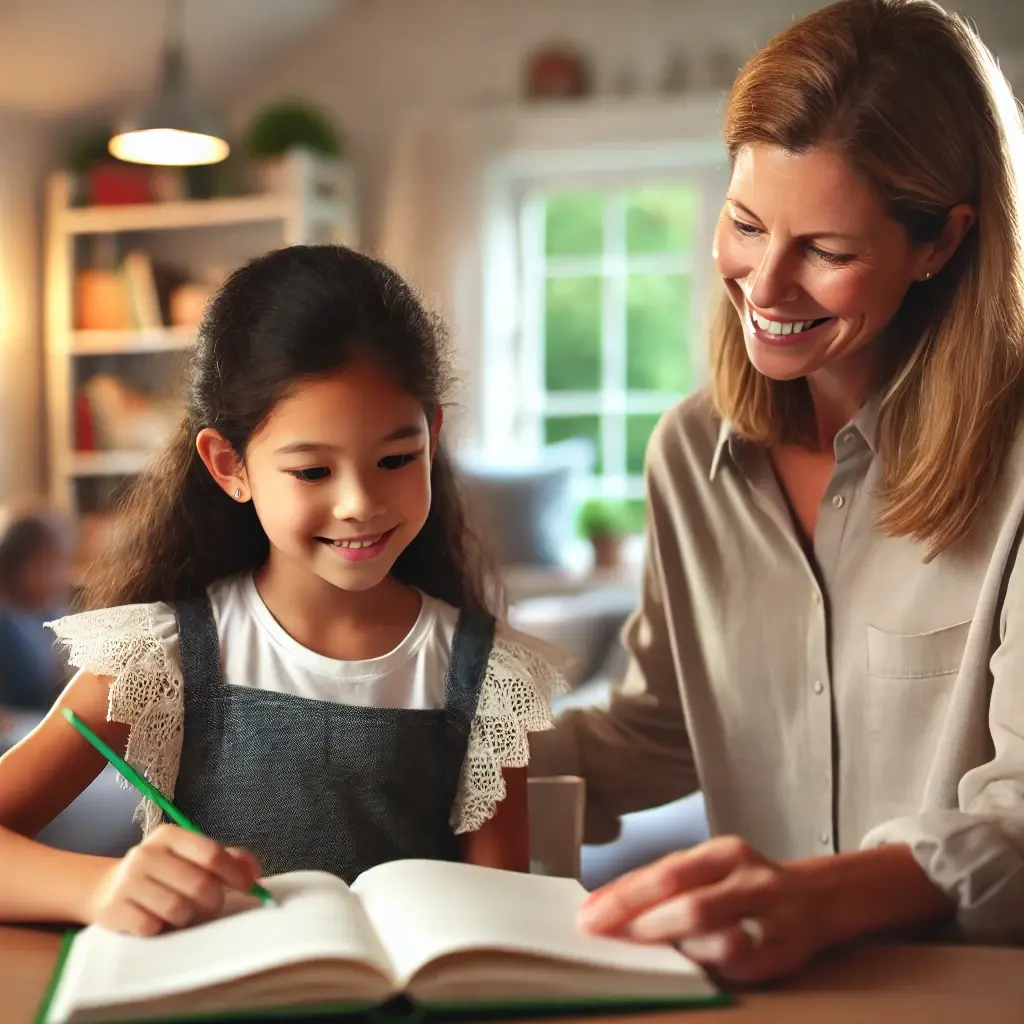 What Does a First Grader Need to Know? Before the first grade, the transition from kindergarten to first grade is a big step for any child. Your child will now be a part of a 'big school,' meaning they are surrounded by more students, can eat in a cafeteria, and play outside during recess. They will also adjust to a longer school day, receive more homework, and learn to get around without much help. These changes in routine will cause your child to start feeling independent. As they adjust to the increased academic demands, you may notice they need extra support, especially in subjects like math. If you're searching for a math tutor near me, a local tutor can offer personalized guidance to help your child strengthen their skills and build confidence.
What Does a First Grader Need to Know? Before the first grade, the transition from kindergarten to first grade is a big step for any child. Your child will now be a part of a 'big school,' meaning they are surrounded by more students, can eat in a cafeteria, and play outside during recess. They will also adjust to a longer school day, receive more homework, and learn to get around without much help. These changes in routine will cause your child to start feeling independent. As they adjust to the increased academic demands, you may notice they need extra support, especially in subjects like math. If you're searching for a math tutor near me, a local tutor can offer personalized guidance to help your child strengthen their skills and build confidence.
Your child has applied what they have learned in preschool to kindergarten and has now gathered more information in kindergarten to apply in first grade. It is important that children have learned certain facts and information in kindergarten so they can apply those skills next year to help them grow. By the end of kindergarten, their knowledge of reading, writing, numbers, and problem-solving has grown, along with being introduced to other subjects like social studies and science. If you're looking for math classes near me, enrolling your child in a local program can help reinforce their math skills and provide the support they need to continue building a strong foundation for first grade.
What Does a 1st Grader Need to Know?
By first grade, your child should have developed key skills across reading, writing, math, and social abilities to ensure a smooth transition. They should recognize uppercase and lowercase letters, increase their sight word vocabulary, and begin decoding new words. In writing, they should be able to write their name and simple sentences.
In math, they should understand basic addition and subtraction, recognize numbers 1-30, and identify shapes. They should also be able to count money and recognize patterns.
In social studies and science, they will learn about basic history, important American symbols, and simple science concepts like the seasons and the difference between living and non-living things.
Social skills like sharing, following directions, and sitting for longer periods are also key. These foundational skills will help your child thrive in first grade!
First Grade Expectations Checklist
Is Your Child Ready for First Grade?
As your child completes kindergarten and prepares for first grade, you may wonder if they have the skills they need to succeed. While children develop at their own pace, here are key areas of readiness to consider.
This first grade readiness checklist will help parents understand the essential skills their child needs before entering first grade. Here is an example checklist of what your child needs to know before starting first grade.
Reading and Reading Comprehension Skills
- Recognize upper and lower case letters
- Know, identify, and increase sight word vocabulary (sight words are words that often are spelled differently than how they sound and children must recognize them by sight. Common sight words are: "their", "if", "of", "each")
- Know the alphabet and basic features of letters and words
- Memorize and correctly spell around 130-150 words
- Decoding or sounding new words out (being able to use letter sounds and patterns to recognize and pronounce written words)
- Rhyming more words (ex: frog and clog)
- Tell the difference between facts and fiction
- Recall the sequence of events in a story (first, second, third, ending, etc.)
Writing Skills
- Write upper and lower case letters
- Write their name
- Use letters and shapes to detect different objects
- Create simple words and sentences
- Write in complete sentences
Fine Motor Skills
- Hold a pencil, crayon, or marker correctly
- Hold scissors correctly
Mathematic Skills
- Recognize that addition means putting two groups of numbers together (5+4) and that subtraction means taking away from one group (5-4)
- Add and subtract numbers 1 through 10
- Use objects to show how to break up numbers less than or equal to 10 in different ways (ex: 6 apples = two groups of 3 apples, or 6 apples = a group of 4 apples and a group of 2 apples.)
- Use objects or draw pictures to help show addition and subtraction
- Count simple money
- Know numbers from 1-30
- Recognize different patterns (ex: blue square, red square, blue square; should know what comes next)
- Recognize more shapes and master previous knowledge of shapes (square, circle, sphere, star, rhombus)
- Know the tools to measure time and temperature
Social Studies Skills
Social Studies is a subject that is gradually introduced to children in kindergarten. They will learn about past history and events that took place in America. Your child should be able to:
- Understand what history is and know some stories, events, and people in history
- Know important people in United States history (George Washington)
- Understand broad categories of time (past, present, and future)
- Know basic cultures and their traditions
- Know people and events honored in commemorative holidays
- Recognize American symbols (the flag, the eagle, the Statue of Liberty)
- Understand that there are other instruments used to locate places (maps, globes)
Science Skills
Science is another subject that is introduced to children in kindergarten. Science teaches about the universe and the natural world through experiments. There are many different areas of science that are introduced upon grade level. Your child should be able to:
- Do easy, hands-on experiments
- Know the four seasons and their different climates
- Know the importance of the sun and what it provides the Earth with
- Know the difference between living and non-living things (a plant vs. a teddy bear)
- Recognize how we impact the Earth in terms of recycling and pollution
Social Skills and Abilities
- Participate in group activities
- Share and communicate appropriately with other students
- Respect their peers
- Raise their hand before being called on
- Seek help with assignments when needed
- Show eagerness and willingness to learn
- Sit for a longer period of time than in kindergarten (15-20 minutes)
What a First Grader Should Know
What does a first grader need to know? By the time your child reaches first grade, they should be well-prepared with essential skills across various subjects. In math, they should be able to grasp addition and subtraction, count money, recognize patterns, and identify shapes. They should also be familiar with numbers 1 through 30 and have a basic understanding of how to measure time and temperature.
In reading, they should recognize both uppercase and lowercase letters, expand their sight word vocabulary, and be able to decode unfamiliar words. Writing skills should include forming their name, creating simple sentences, and using fine motor skills such as holding a pencil or scissors properly.
In social studies, they should know about history, key American symbols like the Statue of Liberty and the flag, and important historical figures such as George Washington. In science, they should understand concepts such as the four seasons, the importance of the sun, and the difference between living and non-living things.
Additionally, social skills such as sharing, following directions, and being able to focus for longer periods are essential for success. Mastering these core skills will help ensure your child’s smooth transition into first grade.
Genie Academy provides after-school enrichment programs for students covering math, reading, writing, and coding. With locations throughout New Jersey – Plainsboro, East Brunswick, South Brunswick, Hillsborough, South Plainfield, and Marlboro - our programs are tailored for students in Pre-K through 8th grade. Whether you need a math tutor in Plainsboro or just want to better prepare your child for Kindergarten, contact us to book your child's free assessment.
Explore the abacus simulator at Genie Academy to enhance your math skills with a hands-on, interactive learning tool designed for all ages. Start practicing today by visiting our online abacus and take your mental arithmetic to the next level!
Read the Rest of the Series!
Have multiple children in multiple grades? Read the rest of the series!
- 21 Things Your Child Should Know Before Entering Kindergarten
- 45 Things Your Child Should Know Before Entering First Grade
- 45 Things Your Child Should Know Before Entering Second Grade
- 43 Things Your Child Should Know Before Entering Third Grade
- 48 Things Your Child Should Know Before Entering Fourth Grade
- 49 Things Your Child Should Know Before Entering Fifth Grade
Sources:
- “1st Grade Skills Checklist.” LeapFrog. Web. 29 Aug. 2017.
- “Preparing for 1st Grade.” Scholastic. Web. 29 Aug. 2017.
- "Model Curriculum English Language Arts Units," New Jersey State Government, http://www.state.nj.us/education/modelcurriculum/ela/1.pdf
- Model Curriculum Grade 1 Mathematics Units, New Jersey State Government, http://www.state.nj.us/education/modelcurriculum/math/1.pdf
Free Gift: The Parents' Guide to 1st Grade!
We wrote a guide answering the most common questions we've gotten from 100s of of parents of first graders. Download it for free today!





